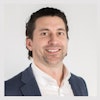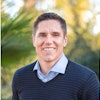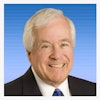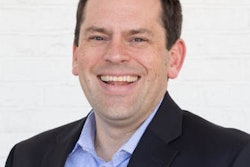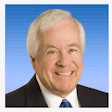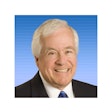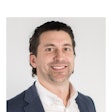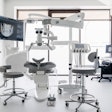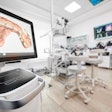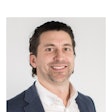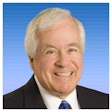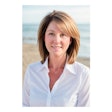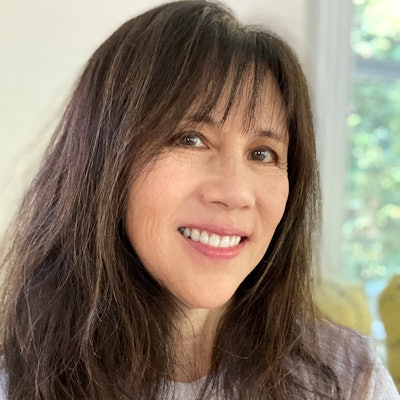
Before COVID-19, we went to the movies, got on planes, and flew to distant continents on vacation. In the world of dental practice sales, before COVID-19, it was a seller's market.
On March 16, when Los Angeles instituted a shelter-in-place order, the entire practice sales marketplace shut down. New business was virtually nonexistent, buyers were scared away with the uncertainty, and lenders were fully occupied handling Paycheck Protection Program (PPP) loan requests. According to Greg Beamer, a broker and transition consultant, "pricing fell around 10%-15%." Elderly or medically compromised owners decided to retire and buyers armed with cash took advantage of the discounted pricing.
 Greg Beamer.
Greg Beamer.One Southern California seller offered a significant discount to the buyer because of the COVID-19 situation, saying it would "make it fair for me and ensure the new owner's success with the practice, staff, referrals, and patients. It was the time for mutual respect and concern."
Today, Beamer maintains it is still a seller's market. Because there are more buyers than sellers, Beamer said, in Southern California, "the ratio [of buyers to sellers] is so skewed that even COVID-19 hasn't had that much of an impact." Kerri McCullough, of Henry Schein Professional Practice Transitions, disagrees and said that primarily due to an increase in inventory, the marketplace has changed to a buyer's market. A recent ADA Health Policy Institute survey showed that 20.8% of dentists are considering selling their practice and 15.7% are considering retirement.
Buyers are looking for "general dentistry practices with a [preferred provider organization (PPO)] fee schedule that refer out most of the specialty procedures," McCullough said. Good parking and high-visibility locations on the street level or in strip mall shopping centers are also desirable. The practice itself should be up to date and well managed with a solid recall program, a sizeable patient base, and a healthy net profit. As before, an assumable lease with a sufficient number of remaining years is a given.
For some sellers, the number of operatories has been a challenge. One dentist with two operatories has had difficulty attracting buyers and is considering alternate strategies such as being acquired by a larger practice. According to Beamer, "Practices where the [profit and loss statements] don't match the tax returns, where the place hasn't been cleaned up, where the computer system has never been updated, and staff are overpaid and nonproducing are not selling."
 Kerri McCullough.
Kerri McCullough.Surprisingly, a new group of buyers has emerged from an unlikely source: Associates furloughed during the pandemic returned to find they no longer had jobs. Whether practice ownership has always been a goal or the disadvantages of being an employee began to outweigh the advantages, this younger group wants to buy a fully functioning, profitable practice. Many have significant student debt and cannot afford the time or resources it takes to build a practice.
For their part, now that the demand for PPP loans has faded, lenders have returned to the dental practice market, albeit with more stringent requirements. As the scrutiny has increased, the loan approval timeline is longer post-COVID-19. According to both McCullough and Beamer, lenders need to see accurate month-by-month reporting and a post-COVID-19 volume of at least 75% of 2019 revenue. It's becoming more common for lenders to insist sellers carry back a portion of the loan and buyers have some liquidity. Above all, lenders are looking for practices that generate good, consistent cash flow.
With regard to specialty practices, the changes that occurred before COVID-19 have persisted, with a trend toward traveling specialists in lieu of practice ownership, the exception being pediatric dentistry. Most specialists are making an excellent income right out of graduate programs and prefer to work in several different offices. New practice owners, too, are more inclined to bring specialty procedures in-house. This not only offers a more full-service experience for their patients but also adds revenue and profit to the practice. As a result, specialty sellers will continue to find the marketplace challenging.
When asked what advice he has for sellers, Beamer said, "Look at your practice as if you were going to buy it." He recommends that sellers have the last three years of bank deposits, a copy of the lease, tax returns, financial reports, and practice management reports on hand and readily available for the broker and potential buyers. "Be up to date on your emergency kit," he said, as this one thing may symbolize the seller's engagement and pride of ownership. McCullough echoed this advice, recommending that sellers review their current financial situation and make sure their dental software is updated. Henry Schein is available to help, she said, as it offers a practice valuation for planning purposes.
 Dr. Teresa Yang.
Dr. Teresa Yang.Both Beamer and McCullough have managed forced sale situations where the practice owner had unexpectedly died. Beamer urges practice owners -- and everyone -- to be prepared and to consider everything from placing the practice into a trust to having more than one signer on the bank accounts. He said he has witnessed to too many spouses crying, unable to sell the practice and helpless as it winds through probate -- and even unable to access funds to pay employees or vendors.
Regardless of the stage in life, all practice owners should obtain financial and legal counsel to be prepared.
For the prospective buyer, McCullough said, "Maintain your credit score. Be careful with personal debt and save for when the right opportunity comes along." Likewise, Beamer has practical, useful advice: "Hire competent people to surround yourself with knowledge. Don't cut corners on attorneys, [certified public accountants (CPAs)], or consultants." He further advises buyers to keep track of their production regardless of their place of employment, as this will demonstrate to the lender that the buyer has the "horsepower" to operate a practice.
In addition, all dentists should be saving for retirement.
"The sale of your practice should be the frosting on the cake -- and not the cake," Beamer said.
Author's note: Some quotes were edited for clarity.
Dr. Teresa Yang started two practices from scratch and sold them both. She currently serves as a trustee at the California Dental Association (CDA) and is a member of the CDA Foundation Board. She is also the editor of WestViews at the Western Los Angeles Dental Society. Her general interest articles have been published in online literary journals and on humor sites. She can be reached at [email protected].
The comments and observations expressed herein do not necessarily reflect the opinions of DrBicuspid.com, nor should they be construed as an endorsement or admonishment of any particular idea, vendor, or organization.

